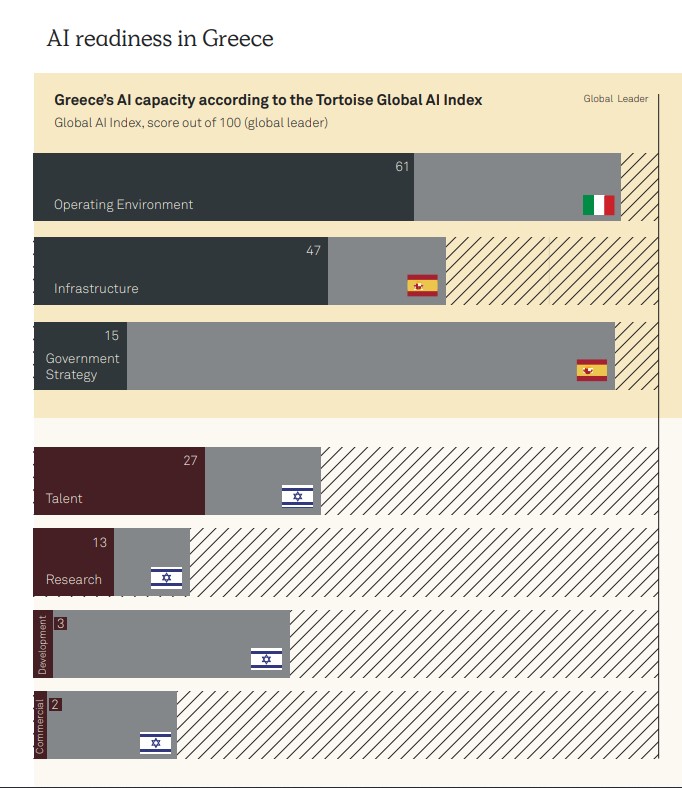GenAI could add 6% to GDP, translating into an economic benefit of up to €10-12 billion per year to the Greek economy
Significant financial footprint in the Greek economy can create generative artificial intelligence (GenAI), as long as our country manages to overcome the current lag and proceed with the widespread adoption of the new technology. In particular, GenAI could to add 6% to GDP, which translates into financial benefit up to €10-12 billion annually in the Greek economy, a contribution that will be reflected within the next 10 years.
The above is confirmed by a survey by the Implement Consulting Group, which was carried out for Google account. The research examines Greece’s current position in the adoption of productive artificial intelligence, as well as the impact that GenAI will have on the labor market. According to her findings, 6% of jobs in Greece, i.e. 250,000 positions, are estimated to have a high exposure to GenAI and are at risk of being lost by the advent of the disruptive technology.
Widespread adoption of productive artificial intelligence translates into an economic benefit of up to €10-12 billion per year
However, as the study explains, the huge economic benefit from artificial intelligence will create new jobs, that will make up for those that will be lost to automation, which GenAI is leading to.
“New jobs in the AI economy are expected to replace those lost to automation, leaving employment levels flat,” states the relevant study.
Effect on work
According to the findings of the research, the data of which was presented yesterday at the Delphi Forum by the General Manager of Google Southeast Europe, Mrs. Peggy Antonakou, 62% of professions in Greece (corresponding to 2.6 million jobs) are estimated to be incorporates generative artificial intelligence tools.
Moreover, about 1/3 of the professions in Greece (32%), i.e. 1.3 million jobs, will not be affected at all by the advent of artificial intelligence.
However, the study by Implement Consulting Group shows that the country is currently lagging behind others – comparable to it – countries in terms of adoption of artificial intelligence. Practically speaking, it lags behind countries such as Italy and Spain, which seem to have run the fastest pace towards GenAI.
“Despite a weaker starting point, Greece can still reap great benefits from AI by investing in skills, fostering innovation and ensuring clear rules”, states the relevant study by Implement Consulting Group, commissioned by Google.

Degree of penetration
Documenting the current situation in Greece regarding the adoption of artificial intelligence, the survey shows that, today, 6 out of 10 Greek companies do not proceed with the adoption of artificial intelligence due to high costs.
In addition, 31% state that they need to upskill their employees in order to be able to meet the demands of artificial intelligence and integrate GenAI into their operations.
Source: Skai
I am Janice Wiggins, and I am an author at News Bulletin 247, and I mostly cover economy news. I have a lot of experience in this field, and I know how to get the information that people need. I am a very reliable source, and I always make sure that my readers can trust me.











